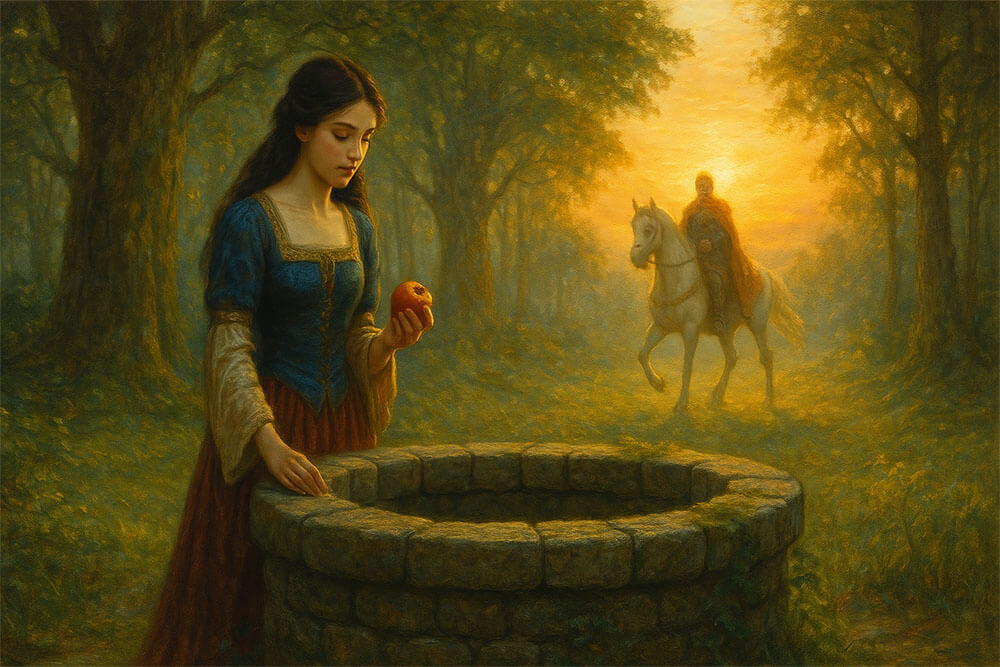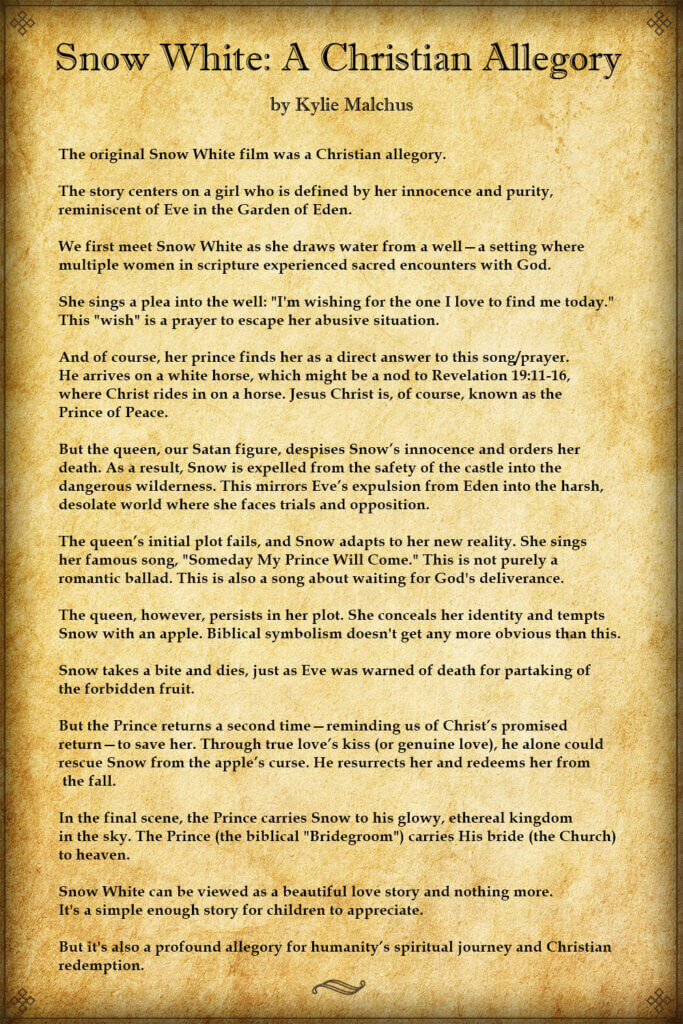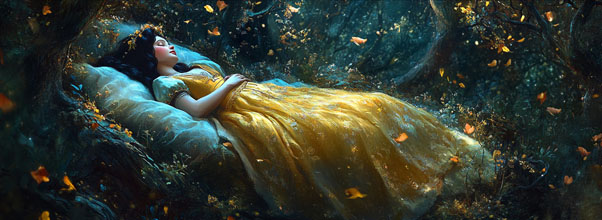In an age when our cultural myths are under constant revision—often by people who neither understand nor respect the source material—it’s refreshing to come across someone who not only honors the original vision but uncovers its deeper meaning. Kylie Malchus has done just that with her illuminating take on Walt Disney’s Snow White and the Seven Dwarfs, a film now over 85 years old but still brimming with timeless magic.
Snow White was first published by the Brothers Grimm in the early 19th century, drawn from even older strands of European folklore passed down through oral tradition. Its themes—innocence, temptation, suffering, redemption—are the timeless ingredients of myth, morality tale, and spiritual parable. That Disney’s original 1937 adaptation preserved much of this symbolic weight is no accident. It was a product of an era when stories still aspired to truth, not deconstruction.

Rather than a tale of female passivity or “outdated” gender norms, Malchus shows that Snow White is in fact a Christian allegory—rich with spiritual symbolism, biblical parallels, and redemptive themes. This interpretation casts the Evil Queen as a Satanic figure, the apple as a stand-in for Eden’s forbidden fruit, and the Prince as a Christ-like savior arriving on a white horse. For those of us who grew up with the original film and instinctively felt there was something sacred about it, this framework provides language and insight that reaffirms what we already knew deep down.
This piece will resonate especially with parents, Christians, and anyone tired of watching our cultural inheritance get vandalized under the guise of progress. It reminds us that stories like Snow White endure not because they are old, but because they are true in the deepest sense. Below is Kylie Malchus’ full allegorical interpretation—one that might just renew your love for a story that has quietly echoed the Gospel all along.
—Wolfshead
The original Snow White film was a Christian allegory.
The story centers on a girl who is defined by her innocence and purity, reminiscent of Eve in the Garden of Eden.
We first meet Snow White as she draws water from a well—a setting where multiple women in scripture experienced sacred encounters with God.
She sings a plea into the well: “I’m wishing for the one I love to find me today.” This “wish” is a prayer to escape her abusive situation.
And of course, her prince finds her as a direct answer to this song/prayer. (No, Rachel Zegler, he doesn’t “stalk” her. And no, it’s not “weird.”) He arrives on a white horse, which might be a nod to Revelation 19:11-16, where Christ rides in on a horse. Jesus Christ is, of course, known as the Prince of Peace.
But the queen, our Satan figure, despises Snow’s innocence and orders her death. As a result, Snow is expelled from the safety of the castle into the dangerous wilderness. This mirrors Eve’s expulsion from Eden into the harsh, desolate world where she faces trials and opposition.
The queen’s initial plot fails, and Snow adapts to her new reality. She sings her famous song, “Someday My Prince Will Come.” This is not purely a romantic ballad. This is also a song about waiting for God’s deliverance.
The queen, however, persists in her plot. She conceals her identity and tempts Snow with an apple. Biblical symbolism doesn’t get any more obvious than this.
Snow takes a bite and dies, just as Eve was warned of death for partaking of the forbidden fruit.
But the Prince returns a second time—reminding us of Christ’s promised return—to save her. Through true love’s kiss (or genuine love), he alone could rescue Snow from the apple’s curse. He resurrects her and redeems her from the fall.
In the final scene, the Prince carries Snow to his glowy, ethereal kingdom in the sky. The Prince (the biblical “Bridegroom”) carries His bride (the Church) to heaven.
Snow White can be viewed as a beautiful love story and nothing more. It’s a simple enough story for children to appreciate.
But it’s also a profound allegory for humanity’s spiritual journey and Christian redemption.

I have taken the liberty to create a graphic of this reflection. Feel free to download it. Of course, all credit goes to Kylie Malchus.






Rachel Zegler was the best person to cast as Snow White when the intent was to replace lovely with loathsome. The positive message got twisted beyond recognition. I didn’t watch it, but I watched Gladiator II and think Ridley Scott should no longer make movies, and David Scarpa, responsible for screenplay, seems to become my personal red flag when it comes to movies.
Bottom line is again Wokeness doesn’t create, it can only drag down and destroy.